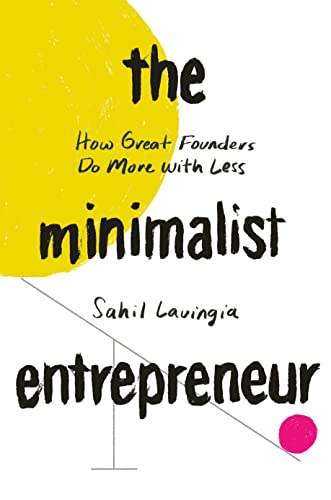What makes this book so valuable is that the author has seen many different scenarios of entrepreneurship.
He’s tried raising capital to build a startup. He’s also tried the route of growing slowly and focused on providing a great product/service without any unnecessary acceleration/pressure from investors.
Flow: 5/5
Actionability: 5/5
Mindset: 4/5
Some of My Highlights:
“You don’t learn, then start. You start, then learn.”
“This is what being a minimalist entrepreneur is all about: making a difference while making a living.”
“The whole system is riding on at least 5 percent of VC-baked companies delivering tenfold to one hundredfold returns to balance out losses and make it all worth it. Without them, the VC model simply doesn’t work.”
“Before you become an entrepreneur, become a creator.”
“…most businesses fail because they aren’t built with a particular group of people in mind.”
“…the best communities are made up of individuals who might be otherwise dissimilar but who have shared interests, values, and abilities.”
“…you don’t have to bring your whole self to every community you join, but you do have to bring a slice of yourself.”
“On the internet, they say, 1 percent create, 9 percent contribute, and 90 percent consume.”
“Become a person who helps people precedes building a business that helps people.”
“…you should focus on a community where you can (and want to): (1) create long-term value; (2) build relationships for decades to come; and (3) carve out a unique, authentic voice for yourself.”
“The best way to win is to be the only.”
“…focus on your first customers, using your time and your expertise to solve real problems for real people.”
“If you want to make a movie recommendation service, start by telling friends to call you for movie recommendations.”
“Unfortunately, many people miss this step, falter, and ultimately fail because they go straight from problem to product before learning exactly what and how to build.”
“Until you get through the entire process of solving the customer’s problem and (ultimately) receiving payment, you won’t know what the customer wants and is willing to pay for.”
“There are two categories of self-inflicted mistakes or ‘unforced errors,’ to watch out for. The first set relates to running out of money, the second set to running out of energy.”
“Most people won’t enjoy working at your company, and your job listings should make it clear that they should look elsewhere.”
